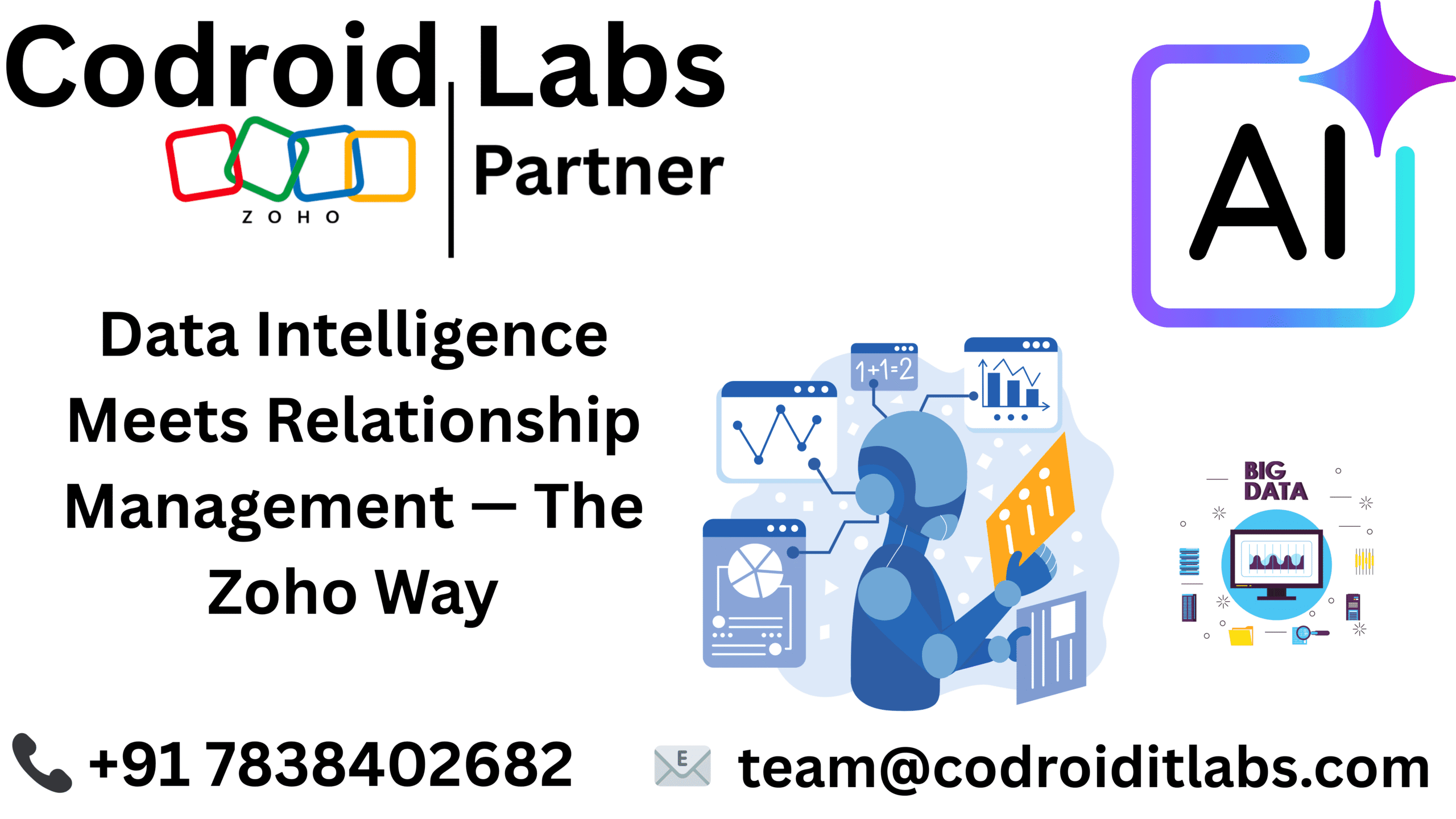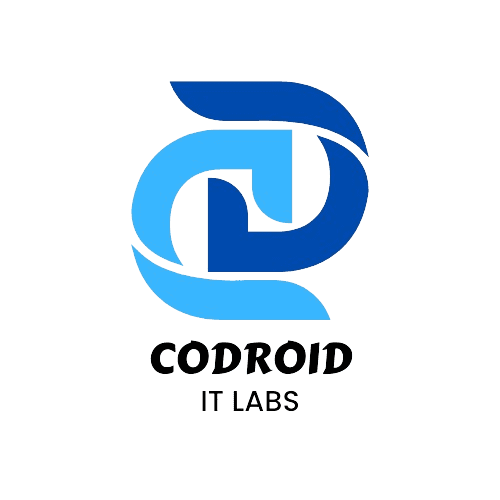
In today’s hyper-connected, data-centric business world, an organization’s prosperity and enduring viability are intrinsically linked to its prowess in comprehending and effectively managing its clientele. Within this critical domain, Customer Data Platforms (CDPs) and (CRM) Customer Relationship Management systems frequently emerge as central topics of discussion. While a cursory look might suggest substantial overlap given their shared focus on customer information, their fundamental objectives and the ultimate value they deliver are, in fact, quite distinct.
For enterprises exploring the extensive Zoho suite, the natural query arises: Is a CDP or a CRM the more appropriate investment? More importantly, how do these specialized tools interact and mutually enhance one another’s capabilities? Let’s delve into the specifics.
Defining the Customer Data Platform (CDP)
A Customer Data Platform (CDP) is engineered for the sophisticated task of collecting, consolidating, and centralizing customer intelligence from a diverse array of digital and physical touchpoints. This includes interactions from websites, email campaigns, social media channels, e-commerce platforms, and even offline engagements, all meticulously unified into a singular, comprehensive customer profile. The core mission of a CDP is to construct an exhaustive, panoramic view of the customer’s entire journey, thereby empowering astute strategic decisions and facilitating highly bespoke marketing initiatives.
Within the Zoho environment, capabilities that mirror a dedicated CDP are intelligently distributed across several integrated applications, such as:
- Zoho Marketing Automation: Essential for monitoring campaign effectiveness and gauging customer engagement levels.
- Zoho Analytics: Utilized for crafting unified data visualizations and generating AI-powered insights.
- Zoho DataPrep: Employed for refining, structuring, and enriching raw customer information before its integration into other systems.
Collectively, these Zoho components deliver a potent, modular “mini-CDP,” centralizing crucial customer data for the benefit of marketing and strategic planning units.
What is a Customer Data Platform (CDP)?
Conversely, a Customer Relationship Management (CRM) system is specifically designed to orchestrate customer engagements, streamline sales workflows, and cultivate enduring client relationships. It empowers businesses to meticulously log prospects, track active deals, and record all communicative exchanges, while also automating routine operational tasks for both sales and customer service departments.
In the Zoho suite, this critical operational function is predominantly fulfilled by:
- Zoho CRM: The flagship application for overseeing sales funnels, automating processes, and managing client dialogues.
- Zoho Desk: Dedicated to proficient customer assistance and the administration of support requests.
- Zoho SalesIQ: Facilitating immediate online chat capabilities and proactive engagement with potential clients.
In essence, CRM prioritizes the cultivation of relationships and the expansion of revenue streams, whereas a CDP is centered on amalgamating data and extracting actionable customer intelligence.
Distinguishing Key Aspects: CDP vs. CRM
Let’s dissect the fundamental differences between these two powerful systems:
- Fundamental Aim: A CDP’s primary directive revolves around the sophisticated aggregation and harmonization of disparate data points. In contrast, a CRM system’s fundamental objective lies in the meticulous orchestration of client relationships and the systematic progression of sales opportunities.
- Zoho Context: Within the Zoho framework, the data unification capabilities of a CDP are realized through the combined power of Zoho Analytics and Zoho DataPrep, while Zoho CRM serves as the principal engine for comprehensive relationship management.
- Information Genesis: CDPs draw their intelligence from a multitude of touchpoints, encompassing digital platforms (websites, emails, e-commerce), social media, and even traditional, offline interactions. CRMs, conversely, predominantly synthesize information derived from direct, transactional engagements, such as sales conversations, scheduled appointments, and support requests.
- Zoho Context: In the Zoho environment, CDP-aligned tools glean insights from marketing campaigns and web analytics, whereas CRMs centralize data from lead profiles and active deal pipelines.
- Primary Beneficiaries: CDPs are predominantly utilized by marketing departments, strategic planners, and data analysts seeking to decipher customer behavioral patterns. In stark contrast, CRMs are the domain of sales representatives, customer service personnel, and executive leadership, who leverage them to accelerate conversions and nurture client relationships.
- Zoho Context: For Zoho users, CDP-centric applications provide significant value to marketing teams, while Zoho CRM is the core empowerment tool for sales professionals.
- Strategic Emphasis: A CDP’s strategic emphasis is squarely on generating profound customer insights and enabling granular personalization efforts. A CRM, however, places its primary importance on automating sales processes and overseeing the comprehensive customer journey from initial contact through retention.
- Zoho Context: Within the Zoho ecosystem, these distinct yet complementary capabilities find their integrated expression within the encompassing Zoho One platform.
- Resulting Advantages: CDPs are instrumental in yielding more intelligent marketing campaigns and fostering increased customer loyalty and retention. CRMs, on the other hand, are pivotal for achieving expedited deal finalization and elevating the overall customer experience (CX).
- Zoho Context: When deployed synergistically within Zoho, these systems collectively offer the potent combination of insightful intelligence coupled with efficient execution.
Why Businesses Need Both (Not Either-Or)
It’s crucial to grasp that CDPs and CRMs function not as competing solutions, but rather as symbiotic partners.
Consider a sales professional leveraging Zoho CRM. This individual possesses valuable information such as a prospect’s identity, organizational affiliation, and current position in the sales funnel. This data is undeniably beneficial. However, imagine the profound impact if this representative could also access insights derived from CDP-like functionalities – data revealing the frequency of website visits, specific products or services explored, or engagement with past email campaigns.
Such enriched context transforms a routine sales interaction into a profoundly personalized and persuasive dialogue. Likewise, a marketing team orchestrating campaigns within Zoho Marketing Automation can meticulously refine their messaging, drawing upon CRM data points like customer lifetime value or historical transaction records.
By combining both, businesses achieve:
- Improved retention and loyalty
- Unified customer intelligence
- Better personalization at scale
- Smarter sales conversations
The Zoho Ecosystem: A Unified Advantage
Diverging from conventional approaches where enterprises often procure discrete CDP and CRM platforms from various vendors, Zoho presents an inherently integrated ecosystem. Here, both sets of functionalities organically enhance one another.
Zoho CRM orchestrates client relationships, manages sales pipelines, and drives revenue.
Zoho Analytics combined with Zoho DataPrep performs the vital tasks of data consolidation and refinement, fulfilling CDP-esque roles.
Zoho Marketing Automation translates actionable insights into targeted, effective campaigns.
Zoho Zia (AI) proactively forecasts market trends, suggests optimal actions, and automates mundane operational tasks.
This comprehensive integration liberates your organization from the complexities of managing disparate vendors or intricate integration projects. The Zoho ecosystem delivers the synergistic totality of CDP and CRM capabilities within a single, fluid platform.
CDP vs. CRM
When embarking on your digital transformation journey with Zoho, the optimal starting point hinges on your most pressing business objectives:
- Opt for CRM implementation first if your chief obstacle lies in the effective management of sales processes, lead nurturing, and direct customer interactions.
- Prioritize CDP-centric tools first if you are contending with highly fragmented customer data dispersed across numerous channels and your immediate need is to centralize and harmonize these insights.
Ultimately, to foster sustainable, long-term organizational growth, the collaborative deployment of both systems will prove essential.
Concluding
Within the sophisticated Zoho framework, the discussion transcends a mere “CDP versus CRM” dichotomy; it evolves into a powerful “CDP plus CRM” synergy. This combined approach equips businesses not merely to archive data, but to derive actionable intelligence from it. Through the seamless integration of applications such as Zoho CRM, Zoho Analytics, Zoho DataPrep, and Zoho Marketing Automation, enterprises gain the distinct dual advantages of cultivating robust customer relationships and making more astute, data-informed strategic choices.
Ready to Get Started on Zoho?
Let’s build your business the smart way — with Zoho and Codroid Labs by your side.
📅 Book your free consultation now
